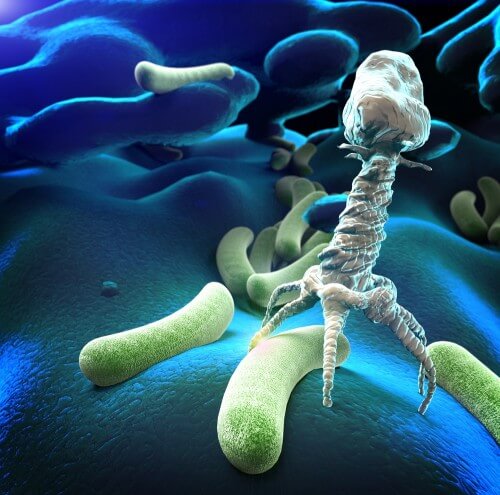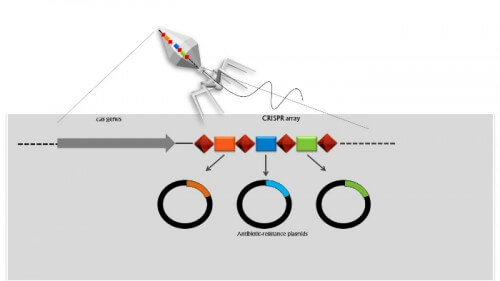Israeli scientists have developed a method to eliminate bacterial resistance to antibiotics

Antibiotic-resistant bacteria are among the greatest threats to medicine today. The widespread use of antibiotics activates the principles of natural selection on the bacteria: those who are not resistant are extinct. Thus, it is humans who cause the appearance of bacteria resistant to every type of antibiotic that science manages to produce. In hospitals, where strong antibiotics are widely used, bacteria known as superbugs appear that are resistant to several types of antibiotics, and medicine is finding it increasingly difficult to deal with them. A development by researchers from Tel Aviv University may change the situation, causing such bacteria to lose their resistance.
Anti-resistant viruses
Most bacteria acquire the resistance through plasmids - DNA molecules that are separated from the rest of the bacteria's genetic material. The genes in the plasmid produce proteins that allow the bacterium to break down the antibiotic, block its activity, prevent its entry into the bacterium or alternatively - throw it out when it enters. The researchers, from the School of Medicine, decided to face the challenge using bacteriophages - viruses that attack bacteria. The bacteriophage, or phage for short, sticks to the bacterium from the outside, and injects its genetic material into it. There are quite a few researchers trying to take advantage of this ability of the phages to use genetically modified viruses as a type of antibiotic, and make them eliminate the bacteria. This approach has so far only had very partial successes, and is far from providing a real solution to the problem of resistant bacteria. The research team led by Prof. Udi Kimron decided to take a different approach: instead of using a phage to kill the bacteria, they seek to make it lose its resistance to antibiotics.

cut the plasmid
The researchers, led by Dr. Ido Yosef and research student Miri Menor, created genetically modified phages, which contain genes of the CRISPR system - this is a system originally designed to provide bacteria with protection against phages (as we told in the small light), whereas here the researchers harnessed it to destroy Plasmids carrying antibiotic resistance. "The system was engineered so that it is able to identify only the plasmids responsible for resistance," explains Kimron. "We know very well most of the genes that give bacteria resistance to antibiotics, and can engineer the phages so that they attack a very wide variety of plasmids." In an article in the Journal of the American Academy of Sciences (PNAS), the researchers report that they successfully tested the method on bacterial species commonly used in basic research, causing them to lose their resistance to antibiotics. Now they intend to test the method on disease-causing bacteria.
Innovative disinfection
The goal of the researchers in this study is not to develop a new antibiotic drug, designed to treat patients infected with resistant bacteria. They are interested in creating new disinfectants, which will change the balance in hospitals, and make the resistant and dangerous bacteria become vulnerable to normal antibiotic treatment again. "We were able to develop a system that turns resistant bacteria into antibiotic-sensitive bacteria," says Kimron. "It was a proof of feasibility, and now I hope we will be able to use it also on bacteria that endanger public health."

7 תגובות
It is not clear what the Israeli team's 'discovery' is. The Soviets developed this issue very strongly after WWII.
http://he.wikipedia.org/wiki/בקטריופאג'
I am aware about Bar Ilan University's research by prof. E. Banin, which found the method to impair bacterial resistance to antibiotics.
I am aware about Bar Ilan University's research by prof. E. Banin, they found the method to impair bacterial resistance to antibiotics.
It's a shame to be pessimistic.
Yigal.
These viruses can also kill the bacteria. But it is not possible to register a patent on a virus from nature. —> No one can make money from these viruses. —> no research —> people will continue to die from antibiotic resistant bacteria.
What's more: I would add the genetically engineered viruses to every ampoule of antibiotics that leaves the factory.
Yigal.
I really liked it even though I don't like the idea of disinfecting hospitals with genetically engineered viruses.
Yigal.